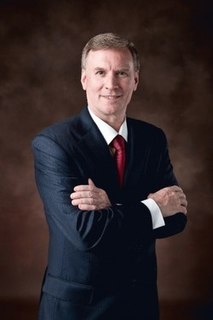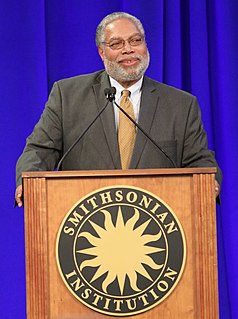A Quote by Hillary Clinton
People are stereotypes, they are caricaturized. It comes from both sides of the political aisle, it comes from the press. It's all about conflict, it's all about personality, and there are huge stakes in the policies that are being debated, and I think there's a hunger amongst a very significant, maybe even a critical mass of Americans, clustered on the left, right, and center, to have an adult conversation about how we're going to solve these problems ... but it's not for the fainthearted.
Related Quotes
There are a lot of polls that show that actually Americans have a pretty high opinion of teachers, that Americans think teachers are just about as prestigious as doctors. And yet there's this political conversation - this reform conversation - that paints a very negative picture of the effectiveness of the teaching population. So there's definitely a tension between the way teaching is talked about and understood at the political level and how everyday average Americans think about teachers.
We can be aggressive at the right time with the right stakes when it comes to price. But I think for us, it starts and ends with people. And generally speaking, venture investors will say that. Right? That people are very important. It is all about the people. But at Anthemis, it is beyond "all about the people." Because it's almost exclusively about the people. We've been operating this way for a while.
A lot of the problems of parenthood are universal. Yes, it's harder being younger and growing up yourself, but all those anxieties and problems are going to be faced by anyone at any age. When people hear about teenage parents and teenage pregnancy, they attribute a lot of personality traits to those individuals, which is just such a bizarre thing when you really think about it. Like, how does age and circumstance equate to some kind of personality trait?
Congress has an obligation to make controversial decisions on how to handle undocumented immigration. Lawmakers on both sides of the political aisle have refused to take the tough votes on the issue for decades. Whether it's been to take advantage of cheap labor or for political purposes, both sides are guilty.
My concern about Barack Obama is he ran a campaign in 2008 where he said we're going to bring people together and solve big problems. And he specifically talked about the need to reach across the aisle and deal with issues like the economy, which was obviously the top issue in 2008. It has not happened.
I think the single most important political distinction today is actually between open-minded versus closed-minded, and that's why I think this crosses the boundaries of traditional - center-right and center-left have much more in common with each other right now than the right does with the center-right, and the left does with the center-left.
The story of slavery is everybody's story. It is the story about how we're all shaped by, regardless of race, regardless of how long we've been in this country. We hope that we can be a factor to both educate America around this subject but maybe more importantly help Americans finally wrestle with this, talk about it, debate it, because only through that conversation can we ever find the reconciliation healing that I think we all want.
We need a better way to talk about eating animals. We need a way that brings meat to the center of public discussion in the same way it is often at the center of our plates. This doesn't require that we pretend we are going to have a collective agreement. However strong our intuitions are about what's right for us personally and even about what's right for others, we all know in advance that our positions will clash with those of our neighbors. What do we do with that most inevitable reality? Drop the conversation, or find a way to reframe it?

































